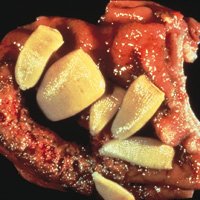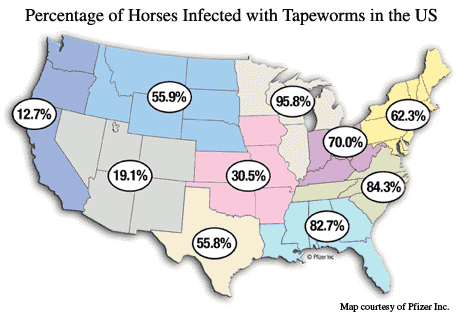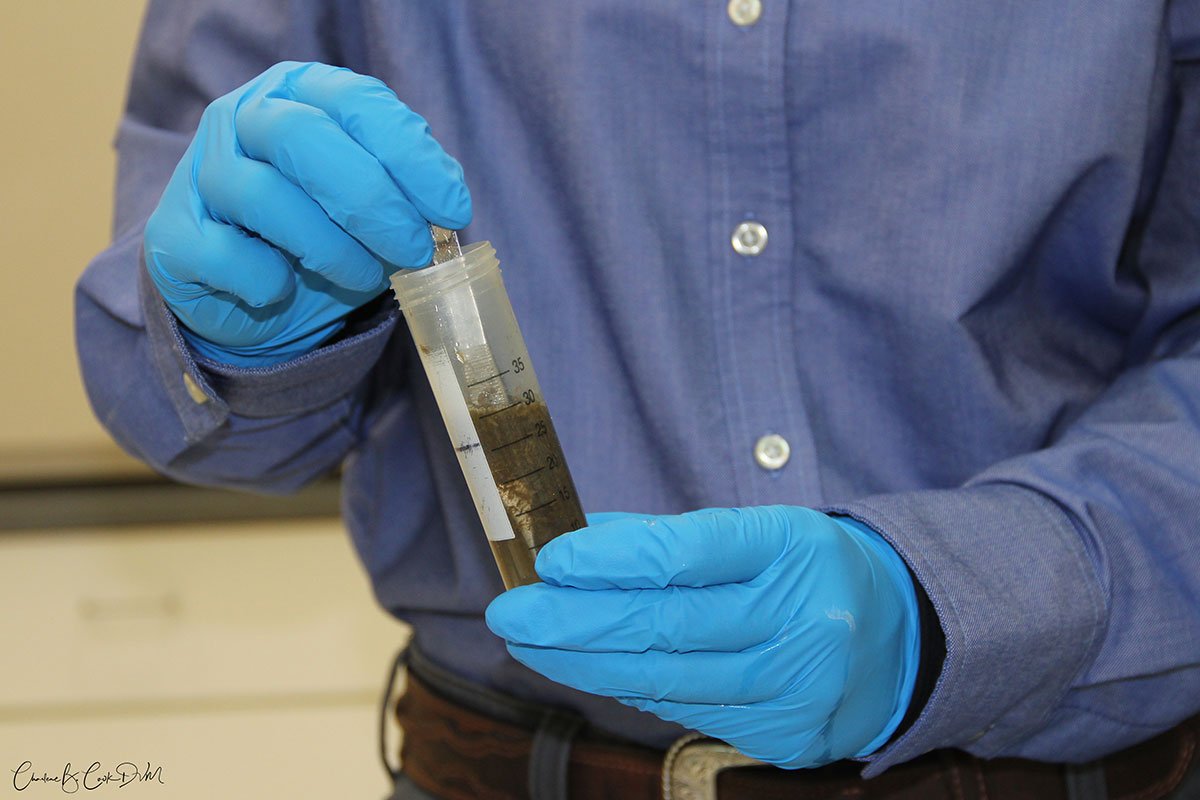You heard all the jokes; every skinny kid heard this one. “He’s so thin he must have a tapeworm”. Well in horses tapeworms cause a different type of problem, while they rarely cause weight loss they can be an important cause of colic.
Horse tapeworms don’t look like tapeworms from dogs, cats or even people. Tapeworms in the horse are flat, white and vary in length form 1 inch to up to 30 inches depending upon the species. But you are not likely to ever see one.
Tapeworms attach to the intestinal wall with sucker-like mouth parts. These attachment sites become irritated and swollen causing the intestine to malfunction. The most common type of tapeworm lives at the ileocecal junction where the ileum (the last section of small intestine) joins the cecum. When the intestinal wall becomes swollen from tapeworm irritation it can block the intestine causing an impaction or worse yet it can cause an intussusception when one segment of intestine telescopes into another. Without surgery horses with an intussusception will die.

There are 3 species of tapeworms.
- Anoplocephala perfoliata – lives at the ileocecal junction and grows to about 1 inch in length
- Paranoplocephala mamillana – lives in the stomach & small intestine and are smaller in size.
- Anoplocephala magna – lives in the stomach & small intestine as well but can reach lengths of up to 30 inches.
Horses get tapeworms while grazing. Eggs are passed in the horse’s manure and then ingested by Orabatid mites living on the pasture. The eggs hatch and the larvae continue to develop within the mite. Orabatid mites living in the soil crawl up blades of grass during periods of hot, humid weather. When the horse takes a bite of grass he ingests the mite. The larvae continue to develop into adult tapeworms within the horse’s gut.
Tapeworms don’t produce a lot of eggs so fecal exams are frequently negative unless they are very high numbers of eggs. A blood test was developed by the University of Tennessee to detect infections in cases where fecal tests are negative. Testing a large number of US horses showed the high rates of infection except areas with a desert climate.
Tapeworms can be easily treated by using selected products. All horses who graze on pasture should be treated once yearly for tapeworms. It is a good idea to do this treatment in the late fall or winter after a killing frost.


